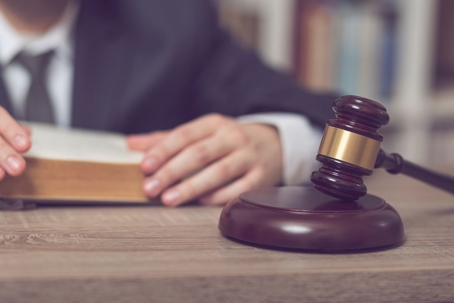When you are charged with a felony, you may encounter terms and phrases that are unfamiliar to you. Below are common terms and their descriptions that are frequently used in the course of a felony case.
- Investigation: Police and detectives conduct various interviews, examinations, searches, and seizures, in order to gather as much information as possible about a crime and the people involved.
- Secret Indictment: The case is presented directly to a grand jury while bypassing the lower municipal or county court and is under seal typically until the suspect is indicted. This occurs frequently with cases involving confidential informants in order to protect their identity and ensure their safety.
- Direct Presentment: Police and detectives present their evidence directly to the county prosecutor, who formally presents the case to a grand jury.
- Initial Appearance: The defendant goes before the presiding judge, either in person, or sometimes by video, where the charges are read, bail is set, and the court is notified as to whether the defendant will be retaining counsel or if they will require counsel to be appointed.
- Preliminary Hearing: This takes place at a municipal or county court. If the Preliminary Hearing is not waived by the defendant, the judge will determine if there is enough evidence that a felony was committed, and if so, the case will be transferred or “bound over” to the Commons Plea Court in that county. At this hearing, the prosecutor and defense attorney may attempt to resolve the case without binding the case over. If the case is not resolved and bound over, it will be presented to the grand jury.
- Grand Jury: A group of fifteen (15) citizens who serve a term of two to four months, and who determine if various cases have enough probable cause to move forward with criminal proceedings.
- Indictment: An order issued by the grand jury indicating that they found the case at hand met the threshold of probable cause, and that the case will move forward in court.
- No Bill: An order issued by the grand jury indicating that they did not find that the case at hand met the threshold of probable cause, and that no further action will take place.
- Pre-Trial: The prosecutor and defense attorney meet and attempt to either resolve the case to avoid trial or prepare to go to trial. The attorneys will exchange discovery prior to this hearing so that each party is aware of all the evidence involved in the case.
- Discovery: Any and all evidence that the prosecutor has gathered with regards to the defendant. This can include, but not limited to, police reports, written statements, recorded interviews, autopsy reports, photos, dash cam and body cam videos, and phone records.
- Plea Hearing: A hearing that takes place following one or more pre-trials in which the defendant enters a formal plea of guilty and the prosecutor outlines any suggestions/recommendations that the parties have agreed to.
- Jury Trial: A jury of twelve (12) citizens determine the weight of the evidence and render a verdict of either guilty or not guilty.
- Bench Trial: A judge determines the weight of the evidence and renders a verdict of either guilty or not guilty.
- Pre-Sentence Investigation: Prior to the sentencing hearing, the court will order a pre-sentence investigation to look into the defendant’s background, criminal history, and the general facts surrounding the crime in order to suggest the fairest sentence possible.
- Sentencing Hearing: The judge will determine what sentence will be most appropriate for the rehabilitation and incapacitation of the defendant without demeaning the seriousness of the offense.
If you or someone you know is facing felony charges, please feel free to contact Hartwig Law LLC at (330) 718-9499 for a free consultation!

